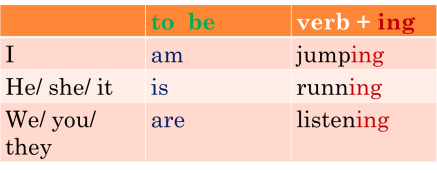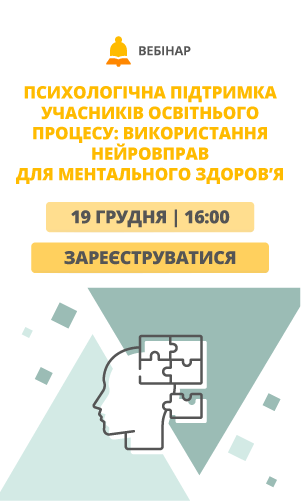Конспект уроку з англійської мови для 4 класу на тему"Види подорожей"
Відкритий урок у 4 класі
Розробка відкритого уроку
з англійської мови
на тему «Види подорожі»
4 клас
Lesson plan
Class 4
Topic: Travelling
Micro topic: Ways of travelling
Objectives: to give some information about different ways of travelling and revise previously learnt vocabulary, to introduce a new grammar point (The Present Continuous Tense), to develop speaking skills, thinking abilities, to teach pupils to respect the partner’s point of view, to widen pupils’ outlook, to create a relaxed atmosphere in the classroom and promote interest in the culture.
Vocabulary: journey, trip, tour, voyage, travelled by car/ship/ train/bus/plane.
Grammar items: The Present Continuous Tense
Materials to be used: a computer, multimedia system, pictures of different ways of travelling, handouts, grammatical table.
Procedure
1. Introduction
Greeting:
-Hi, everyone! How are you?
Aim.:
-Today we are going to continue speaking about travelling. Our theme is “Ways of travelling”. By the end of the lesson you will be able to name some ways of travelling and make your own statements on the topic in Present Continuous.
-I have a proverb for you. Let’s read it:
“To travel is to live”. (Slide 3)
2. Warm up and review:
- Let’s read the rhyme about travelling. (Slide 4) There are some missing words.
Try to name them looking on the pictures.
Teacher proposes pupils to read the sentences and name the means of transport.
Travelling
Take a bus or take a train,
Take a boat or take a plane,
Take a taxi, take a car,
Maybe near or maybe far,
Take a rocket to the moon,
But be sure to come back soon.
-Answer the questions:
What is your favorite kind of transport?
Do you go to school on foot or by car?
Do you like to travel by bus or by car?
Do you like to travel by ship?
Does your mum like to travel by train?
3. Presentation of new material
Presenting vocabulary
(Slide 5)
Teacher shows the pictures of different ways of travelling and explains their meaning:

a journey – an occasion when you travel from one place to another – used especially about travelling a long distance, or travelling somewhere regularly.
My friends have a journey by car to Italy every summer.
a trip – a journey to visit a place.
They take a trip to London every spring.
a tour – a journey for pleasure, during which you visit several different towns, areas.
We make a tour to Europe every year.
a voyage – a long journey in a ship
He makes a voyage by ship every summer.
- So remember such ways of travelling as: a tour, a voyage, a journey, a trip.
- Let’s play the game “Echo”.
Children repeat the words in groups and imitate the sounds of echo.
- Repeat these words one more time: a journey, a trip, a tour, a voyage.
Presentation of Grammar:
The teacher comments own actions going at the present moment and pay attention to the necessity of usage new grammar tense.
The teacher explains the grammar material. (Slide 6)
- We’re going to talk about actions going at the present moment. That’s why we need to understand the use of the Present Continuous Tense. It expresses an action going at the present moment, at the time of speaking. The Present Continuous Tense is formed by means of the auxiliary verb to be in the Present Simple and the Present Participle of the main verb.
Teacher explains the rules of spelling in Present Continuous tense.
Usually we add ing
|
Work |
working |
|
Stand |
standing |
|
Learn |
learning |
When the verb ends in an e, we drop the e and add ing
|
Come |
coming |
|
Have |
having |
|
Write |
writing |
If a one syllable (with only one vowel sound) verb ends in one consonant (for example p, t, r) that follows one vowel (for example a, o, e), we double the consonant.
|
Swim |
swimming |
|
Get |
getting |
|
Stop |
stopping |
Some verbs have irregular ing form
|
Lie |
lying |
|
Die |
dying |
|
Travel |
Br. travelling |
(Children listen to the teacher’s explanation and look at the grammar table)

- Let’s watch a video and repeat the examples.
4. Practice of new material
Speaking
- Children, make up as many sentences as you can. Use the table (Slide 7):
|
I My brother We Children She |
am is are |
making a voyage taking a trip having a journey making a tour |
by ship by train by plane by car by bus |
Writing
Competition “ Who know the –ing verbs best of all”
- Let’s have a competition. Divide into groups.
You have to write the verbs with –ing ending. The group which do this task faster will be the winner.
|
cut |
sit |
run |
swim |
|
make |
dance |
give |
write |
|
read |
sing |
jump |
cook |
|
play |
fly |
cry |
try |
- Let’s work with your cards. Look at the letter-box, find and circle the new words. Then write them out. (Slide 8)
|
m |
k |
L |
o |
t |
o |
k |
r |
|
r |
j |
O |
u |
r |
n |
e |
y |
|
t |
m |
N |
t |
r |
i |
p |
t |
|
r |
v |
O |
y |
a |
g |
e |
g |
|
e |
t |
K |
s |
t |
o |
u |
r |
|
j |
o |
U |
r |
n |
s |
t |
y |
_______________
_______________
_______________
5. Pause
Song “What are you doing now?” (Slide 9)
Teacher proposes to watch a cartoon. Children repeat the words and actions.
6. Application of new material
Group work
- Now we’ll do some group work. (Slide 10) Work in group of four. Look at the words and word combinations. Imagine that you are travelling at this moment and make up your own sentences about it. Use the word box:
![]()
![]()
![]()
![]()
![]()
![]()
![]()
![]()
![]()
![]()
![]()
![]()
So as you can hear some people like to travel by plane or by bus. To my mind this choice depends on character, health, aims of travelling. People get to know new places, get accustomed to different culture and make new friends. You are familiar with the saying “To travel is to live”.
Work in pairs
- Practice in pairs. Imagine that you’re talking on the phone now.
Work out dialogues by putting these phrases in the correct order.
1.
-Hello!
-Hello!
-Can you come out to play?
-I’m sorry. I’m busy. I’m writing a story about my trip to London.
-That’s OK. Maybe next time.
2.
-Hello!
-Hello!
-Would you like to go to the park?
-I’d like to but I’m watching a TV programme about sea voyages.
-Well, maybe next time.
3.
-Hi!
-Hello!
-Are you busy now?
-I’m reading a book “Gulliver’s travels”.
-It’s a pity. I’d like to invite you to go for a walk.
- Tell the class what you talked about with your partner.
7. Summing up
- Let’s summarize what you’ve found out.
- Let’s play the game “Catch the word”. Listen to the list of the words. Clap your hands when you can hear the word connecting on the topic:
voyage, voice, tooth, trick, trip, John, journey, two, tour, trap
- Did you enjoy the lesson? What new things have you learned today?
- What proverb about travelling do you know?
- Your homework will be to circle the correct item.
1. Tony_______ a voyage by ship.
a) am making b)is making
c) are making
2. I _____ a great time with you.
a) are having b) am having
c) is having
3. It _____ today.
a) am raining b)are raining
c) is raining
4) We ______ a trip by train .
a) is taking b) are taking
c) am taking
- You were very active. I’m pleased with your work, so you get good marks.
Your marks are ... .
Reserve activities:
Quiz “Means of travelling”
1. This is a very nice way of travelling. You travel by water. People usually travel this way in summer.
2. Many families like to travel by these means of transport. You don’t need any tickets. It is a very comfortable and rather cheap way of travelling. You can stop anywhere you like.
3. It is the quickest and the most convenient way of travelling. You can travel to any continent you like. But it is expensive.
4. This way of traveling is rather fast. When you travel you can see a lot of new places and meet new people. You just buy a ticket, come to the station and take your place in the carriage.
Key: 1. ship, 2. car, 3. plane, 4. train
Handout 1
|
m |
k |
L |
o |
t |
o |
k |
r |
|
r |
j |
O |
u |
r |
n |
e |
y |
|
t |
m |
N |
t |
r |
i |
p |
t |
|
r |
v |
O |
y |
a |
g |
e |
g |
|
e |
t |
K |
s |
t |
o |
u |
r |
|
j |
o |
U |
r |
n |
s |
t |
y |
Handout 2
|
Hello! |
|
I’m sorry. I’m busy. I’m writing a story about my trip to London. |
|
Can you come out to play? |
|
Hi! |
|
That’s O.K. Maybe next time. |
|
Hello! |
|
Well, maybe next time. |
|
Would you like to go to the park? |
|
Hello! |
|
I’d like to but I’m watching a TV programme about sea voyages. |
|
Hello! |
|
You are busy. It’s a pity. I’d like to invite you to go for a walk. |
|
What are you doing now? |
|
Hi! |
|
I’m reading a book “Gulliver’s travels”. |
Handout 3
Circle the correct item:
1. Tony_______ a voyage by ship.
a) am making b)is making
c) are making
2. I _____ a great time with you.
a) are having b) am having
c) is having
3. It _____ today.
a) am raining b)are raining
c) is raining
4) We ______ a trip by train .
a) is taking b) are taking
c) am taking
Literature
1. Longman dictionary of contemporary English. – Pearson Education Limited. – Harlow., 2012. – 2080 p.
2. Virginia Evans. Round up 1. – Pearson Education Limited. – Harlow., 2008. – 113 p.
3. www.youtube. com/watch?v=HcWFBjANh_M
4. www.youtube. com/watch?v=JaOxp2j_JhM
5. Англійська мова для повсякденного спілкування: Підручник/ В.К.Шпак, В.Я.Полулях, З.Ф.Кириченко та ін.; За ред. В.К.Шпак. – 6-те вид., випр. – К.: Вища школа, 2008. – 302 с.
6. Балла М.І. Новий англо-український словник – Понад 160 000 слів та словосполучень – 4-е видання, випр.. та доп. – К: чумацький шлях, 2007. – 668 с.
Верба Л.Г., Верба Г.В. Граматика сучасної англійської мови. Довідник: Київ, ТОВ «ВП Логос», 2002. – 352 с.
7. Зінов’єва Л.О., Омеляненко В.І. Усі фрази та діалоги. English. – Х.: Торсінг плюс, 2012. – 352 с.
8. Полозюк Ж.О. Англійська мова. 4 клас: Плани-конспекти уроків. – Х.: Веста: Вид-во «Ранок», 2006. – 208 с.


про публікацію авторської розробки
Додати розробку
